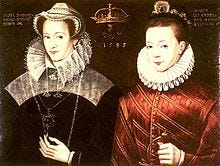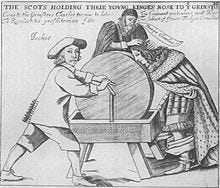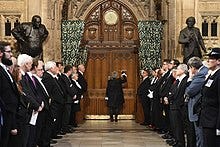The Kings Who Didn't Do Anything
Absentee monarchy in Scotland
Having a king in theory is very different from actually taking a specific individual and crowning him as king, let alone listening to him. I came to appreciate this more from reading through early modern Scottish history.
To some extent, we can see something similar in modern Britain, where Queen Elizabeth has been replaced by King Charles, and a new person's peculiarities and uniquenesses become visible. But this was even more the case before the days of modern constitutional monarchy. When kings and queens had real power, for example, Tsarina Elizabeth's death in 1762 led to Russia switching sides in the Seven Years' War simply because her heir Peter admired Frederick the Great of Prussia (who was on the other side). One foundation of constitutional monarchy in the modern world is to minimize this; to make kingship as much a theoretical thing as possible and keep it as far as possible from actual practice.
When a king does nothing, it's no burden to have a king. This was hinted at in the musical Fiddler on the Roof where persecuted Jews pray, "May God bless and keep the Tsar far from us." They were fine with having a Tsar; they took him for granted. But they didn't want him to do anything. Long before the days of constitutional monarchy or the modern Queen Elizabeth, there was a time when Scotland not only kept but loved a king who did nothing - not seeing it was because he did nothing.
The concept started when James V died in battle with England. (I don't know much about him, but I hear that contemporary folk tales spread calling him "King of the Commons" because he'd sometimes travel around disguised as a common man). When this king died, his only heir was his infant daughter Mary.
The regents ruling Scotland in Queen Mary’s name sent her across the sea to be married to the Dauphin of France (France having promised them an alliance). But shortly afterwards, the Reformation came to Scotland, and Protestantism - Presbyterianism, to be specific - spread vigorously across the country. But, Queen Mary, abroad during all this in the firmly-Catholic French court, remained Roman Catholic. Nonetheless, the Regency (led by John Knox the Presbyterian preacher) immediately prepared to install Mary in her throne as queen. They gave her all privileges and rights she might demand - even allowing the Catholic Mass, which they abhorred and banned as idolatry, to be said in her presence!
To no one's surprise - save every Scottish peer's - Mary did not tolerate the Reformation. The well-grounded rumors of her murdering her husband to marry a new lover did not help her case. The Protestant peers, who’d been willing to recognize her in theory, did not accept what she was doing. Against their wishes, they were forced to revolt to protect Protestantism. They installed in Mary's place her young son James and returned to rule as his regents, honoring him in word to their perfect satisfaction. (Mary herself decamped for England, where she was eventually lured into a fake plot to seize the English crown and executed for it.)

Seeing and knowing this, King James stayed quiet until he could escape to London as King of England, resolving never to return to Scotland where (he said) Presbyterianism was, despite its claims, absolutely inimical to monarchy. James's son Charles, who succeeded to the thrones of Scotland and England, agreed and went further, popularly saying "No bishops, no king." Taking his father's word for truth, he began installing Anglican bishops in Scotland over the objections of the Presbyterian Church. Even though these were Protestant bishops, they insisted that any bishops were against God's will.
Charles, in his full and certain confidence that God had entrusted him with full rights of absolute monarchy, rejected all attempts at compromise as temptations from the world and the devil. This attitude led to both his kingdoms rebelling. In Scotland, the Scots - from peers to commoners - signed a "Solemn League and Covenant" to keep their kingdom Presbyterian. They organized their own government and sent an army to war with their king - but they affirmed him as king. They called him a heretic and unrighteous and worldly - but they continued to affirm him as king. Anything else, they were convinced, would be contrary to God's will, for (in this, and little else, they agreed with Charles) God had made him king.
In England, the victorious Parliament put Charles on trial, executed him, and declared their country a Republic - but the Scots spoke in his defense because they still considered him their king. Upon his death, they promptly proclaimed his son as King Charles II, even though clearly hated Presbyterianism just as much as his father and had fled overseas. They did make him endorse the Solemn League and Covenant, but his heart clearly wasn't in it, and their lords and Parliament insisted on still setting all policy. Still, the English Parliamentary army defeated the Scottish Royal/Presbyterian army, King Charles II fled to Catholic lands abroad, and Scotland stayed under English military rule until the Restoration in England.

Throughout all this, the Scottish Presbyterians kept their devotion in theory to the crown and to the House of Stuart, even though they’d openly revolted against two of their last four monarchs and the other two had clearly hated Presbyterianism. They justified this by their theology: they could not (they said) resist the king except to defend the law and proper religion. Yet, in practice, these exceptions kept recurring whenever a king tried to rule in person.
Arguably, the House of Stuart ended before the Scots' devotion to it did. In the Glorious Revolution against Charles II's brother and heir James, they admittedly threw out "King James the Seventh being a professed papist" (in the words of their Claim of Right), who "did assume the regal power, and acted as King without ever taking the oath required by law" - but that was in favor of his very piously Protestant daughter Mary. Finally, for the first time, a pious Protestant queen was reigning over Scotland (if we ignore how the government was done by her nominally-Protestant but more cynical husband William). Unfortunately, William and Mary didn't give birth to any surviving children, nor did Mary's sister and heir Anne. It was the impending demise of Anne without heir that caused the Scottish Parliament to finally realize that they had to choose a fitting king themselves rather than continue to go by hereditary right.
Parliament's attempt failed - but that was due to English bribes and threatened-overwhelming force. In the generations since James VI had become James I of England, the two kingdoms had been tied closer and closer together despite their continued legal separation. Now, England (clearly the dominant economic and military power) refused to let Scotland go its own way. Thus perished the Scottish idea of an absentee monarch, killed from outside as the Scots' own loyalty was about to remake it.
This sort of absentee do-nothing monarch is loved not for any deeds of his, but for being "a symbol of the state," in the words of the Japanese constitution. He is a father to his people, as the historian C. V. Wedgwood described the Covenenters' ideal, who symbolizes justice. But, that symbol is far off; he never descends from his throne (in distant London) to choose one faction or position above another. The Scottish Presbyterians often spoke of the kingship of Jesus. If Jesus reigned in Scotland, he reigned from Heaven, and good Christians were left to their own devices to figure out his will or grumble against bishops who insisted they represented Jesus. Similarly, King James or Charles reigned in far-off London, and loyal Scots were largely left to figure out his justice for themselves. Charles I was often compared to Jesus in his martyrdom, but he seems similar in this respect too. I don't remember hearing any historians make this comparison, but it seems plausible to me.
And in another way, he is a king to whom no one can have an objection: when John Knox or the Duke of Argyll raises a revolt against the local government, he can proclaim his loyalty to the idea of the monarch just as well as the next man, and there is none to disabuse him. Even when a letter gets to London or Paris and back again, people can protest that the monarch is out of touch and surely would've answered otherwise had they known the truth of local affairs.

The political lessons of this are found well in constitutional monarchy. There, as well as in Stuart Scotland, there is a monarch to whom everyone pays homage but who never herself does anything. Even in Japan (where I quoted their constitution earlier), after the Americans had won World War II, they found that they could very well accept the Emperor remaining as a constitutional monarch. The Covenanters would have gladly made Charles I a constitutional monarch. Yet he did not agree - nor did Mary I, nor did James VI or VII, but the Scots kept their absentee monarchy anyhow.
It was, they insisted, the right thing to do. And it is fascinating to think of.

